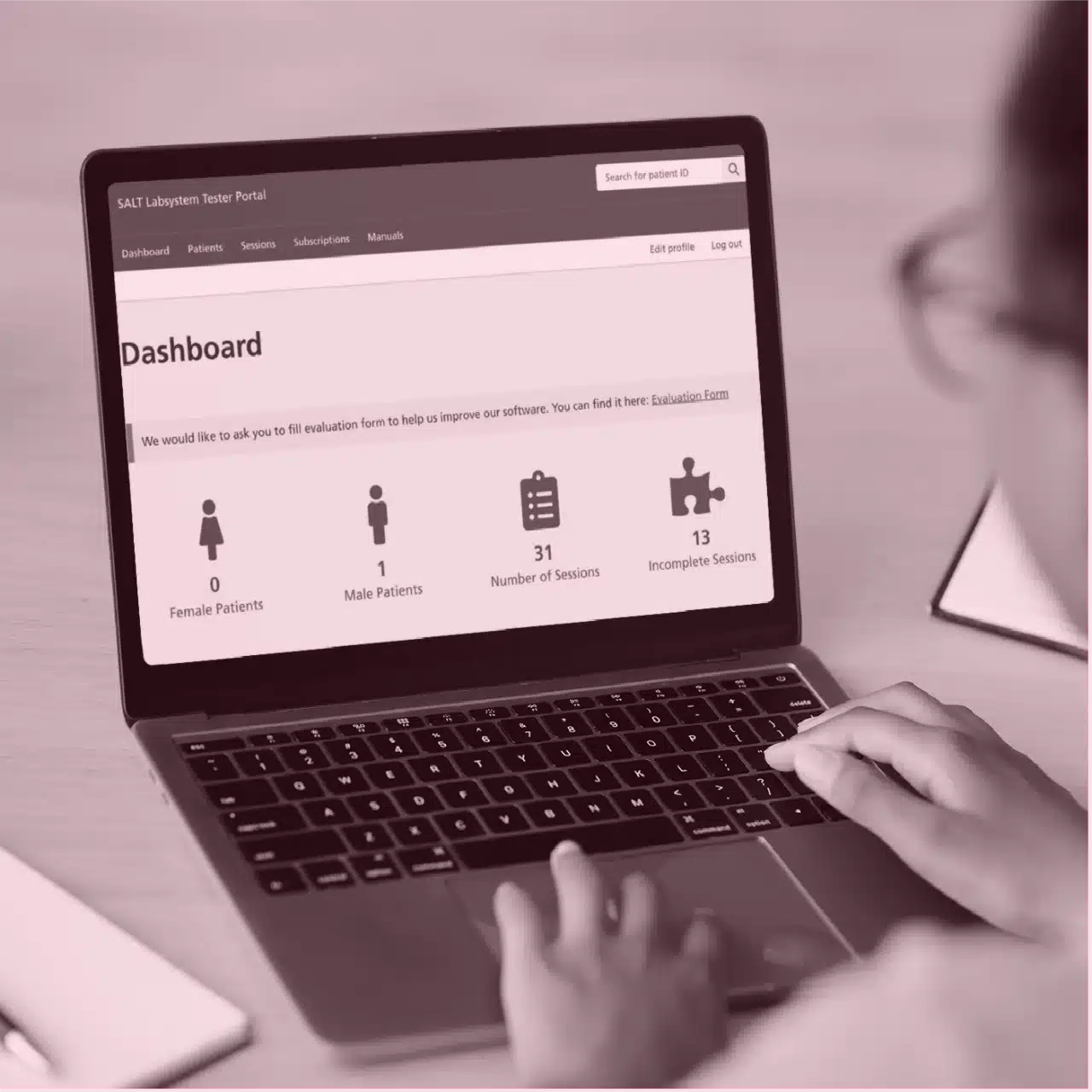
SALT Labsystem.
SALT
Labsystem.
Development of an interactive speech and language clinical assessment app and portal for Arabic-speaking patients.
The Problem.
In the absence of available resources for the Arabic Speaking patient population world-wide, Sheffield University in partnership with Qatar University requested the development of a digital, interactive speech and language clinical assessment app and portal for Arabic-speaking patients.
The aim was to provide an environmentally friendly alternative to traditional paper-based tests to be used remotely by clinicians, offering a new, accessible and effective way of delivering tailored healthcare.
With there being no assessment resources available for the Arabic Language, clinicians historically depended heavily on translated versions of tests used in other languages. This meant a flawed approach with the risk of incorrect diagnosis and intervention.
The Outcome.
A secure, hybrid app and portal, aligned with NHS design patterns, delivering a positive User Experience (UX) and improving patient outcomes, by enabling effective tailored assessments. The app and portal serve as a single point of storage for patient data, responses and scores, streamlining the end-to-end process of patient assessment, review and monitoring.
The digital service caters for the numerous varying Arabic dialects as well as cultural differences in people from Arab-speaking nations, by ensuring recognisable images are used to represent items, taking into account the considerable differences between Gulf and North African culture.
The app was also nominated for the Medilink 2022 and 2023 partnership with academia award.
The Process.
A prototype had been previously created, but following a discovery session and analysis, it was determined that the more agile approach was to start afresh in order to mitigate risk and be more efficient from the get go.
Following the discovery, we started working on the designs using our agile ‘fail fast, learn quickly approach’. Whilst adhering to the NHS design system, we focused on ensuring a User Experience (UX) that was simple, attractive and easy for all users. Through rapid prototyping and regular engagement with users, we reached the optimum user-centric design for both the application and portal.
We then started the development of the app and tester portal. The application had to be used on dual devices and a session had to be accessible simultaneously from anywhere in the world. This was achieved through the utilisation of socket servers. And from continuous testing, we were able to ensure that tests could be effectively carried out from different parts of the globe.
Have a project in mind?
Give us a call or email us now to discuss your new project and how we can help.